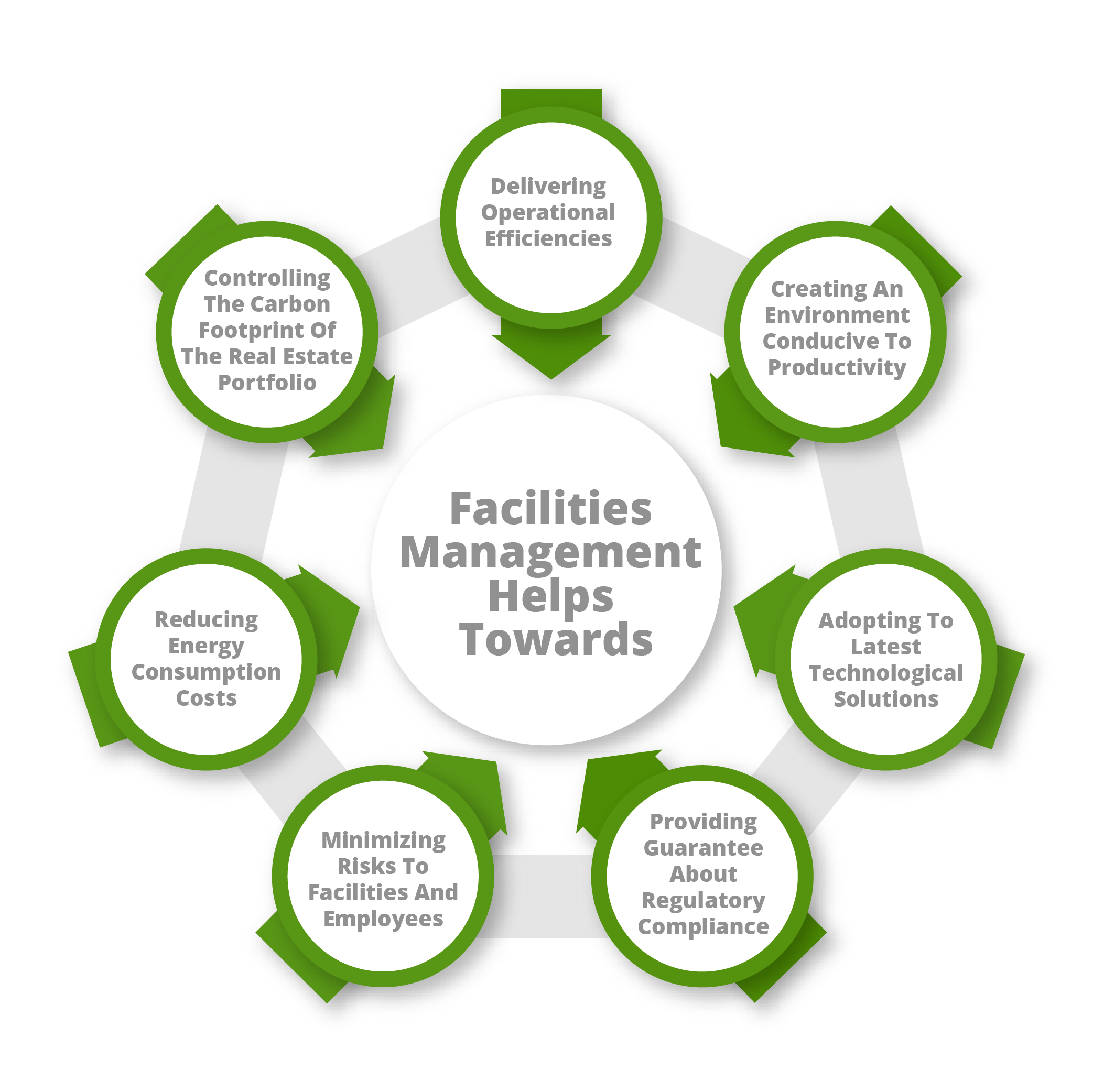Total Facility Management: A Holistic Solution for Building Maintenance
Total Facility Management: A Holistic Solution for Building Maintenance
Blog Article
Top Benefits of Total Facility Management for Streamlined Workflow
Total Facility Management (TFM) stands for a tactical strategy to improving functional effectiveness by incorporating different solutions, such as maintenance and protection, under a unified management structure. The question stays: what specific advantages can companies harness from adopting TFM, and exactly how might these benefits transform their functional landscape?
Enhanced Operational Efficiency
Boosted operational effectiveness is a key benefit of carrying out total facility management (TFM) methods. TFM encompasses an extensive strategy to managing a facility's sources, procedures, and infrastructure, eventually enhancing procedures. By settling numerous services-- such as maintenance, cleaning, safety, and space management-- TFM boosts and minimizes redundancies coordination among different operational functions.
The integration of innovation additional magnifies this effectiveness. Advanced facility management systems supply real-time information analytics, allowing facility managers to make educated decisions that improve workflow and resource allocation. Predictive upkeep strategies, for instance, prepare for tools failures before they occur, decreasing downtime and extending asset lifespan.
Additionally, TFM advertises standard procedures across various divisions, making certain uniformity and top quality in service shipment. This uniformity lowers functional interruptions and promotes a more joint workplace. As a result, staff members can concentrate on their core obligations, driving productivity and enhancing total performance.

Cost Decrease and Savings
Carrying out total facility management (TFM) not just increases functional efficiency however also substantially adds to cost reduction and financial savings. By consolidating different solutions under a solitary management structure, companies can remove redundancies and streamline processes, therefore reducing operational expenses. TFM makes it possible for better procurement methods, permitting companies to work out bulk investing in agreements with providers and provider, bring about lower prices.
Additionally, TFM stresses preventative upkeep, which minimizes unexpected break downs and prolongs the life-span of vital tools. This aggressive strategy not just lowers repair costs yet additionally boosts the integrity of facilitiess, making certain nonstop procedures. In addition, power performance efforts, typically a crucial focus of TFM, result in substantial savings on energy costs, as facilitiess are enhanced for decreased energy intake.
Improved Source Management
Effective resource management is a foundation of total facility management (TFM), allowing organizations to optimize making use of their possessions and workforce. By implementing TFM strategies, companies can thoroughly evaluate their resource appropriation, making sure that every asset is used efficiently and properly. This alternative strategy permits for the recognition of underperforming sources and the capacity for reallocation or improvement.
Furthermore, TFM assists in the integration of modern technology for real-time surveillance of resources, which assists in anticipating maintenance requirements and avoiding pricey downtime. By leveraging data analytics, organizations can make educated decisions regarding resource implementation, ultimately boosting productivity and minimizing waste.
Furthermore, TFM advertises a culture of constant improvement, motivating groups to on a regular basis evaluate and fine-tune their resource management techniques. Total Facility Management. This proactive position not just reduces functional disruptions however additionally fosters advancement, as employees are equipped to recommend improvements based upon their direct experiences with resource use
Streamlined Interaction Channels
In total facility management, structured communication channels play a critical role in promoting cooperation and performance across teams. Efficient interaction ensures that all stakeholders, including facility managers, upkeep team, and solution providers, are lined up with business objectives and functional needs. By developing clear lines of interaction, groups can promptly resolve concerns, share updates, and execute options, consequently decreasing downtime and boosting productivity.
With centralized communication platforms, information is easily accessible, permitting real-time updates on maintenance requests, resource allocation, and project timelines. This transparency not just lowers misconceptions yet additionally encourages staff members to make enlightened choices swiftly. Moreover, streamlined communication facilitates better coordination throughout emergency situations, making sure that all workers are notified and can respond promptly.

Increased Concentrate On Core Activities
A crucial benefit of total facility management is the enhanced concentrate on core tasks, permitting organizations to focus on their main service purposes - Total Facility Management. By contracting out non-core functions such as upkeep, protection, and cleansing, business can reroute their sources and energy in the direction of calculated campaigns that straight add to their affordable benefit and development
Total facility management integrates various operational jobs under a solitary umbrella, cultivating performance and decreasing redundancy. This loan consolidation not just simplifies procedures however likewise enhances responsibility, guaranteeing that every aspect of the facility runs sympathetically without diverting attention from what truly matters-- core business features.
Moreover, this technique allows employees to dedicate their time and initiatives to jobs that drive development and improve consumer contentment, instead than getting bogged down by functional difficulties. With a dependable facility management partner taking care of daily operations, companies can accomplish greater dexterity, respond promptly to market modifications, and maintain a sharper emphasis on their objective.
Eventually, raised focus view it on core tasks results in boosted overall efficiency, allowing companies to reinforce their market setting and accomplish their tactical objectives better. - Total Facility Management
Verdict
In final thought, Total Facility Management dramatically enhances operational efficiency by combining crucial solutions and leveraging information analytics for informed decision-making. Cost reductions and improved resource management add to total savings, while streamlined interaction networks foster cooperation amongst stakeholders.
Total Facility Management (TFM) represents a tactical technique to improving operational effectiveness by integrating various services, such as upkeep and protection, under a unified management structure.Improved operational check this site out efficiency is a primary advantage of applying total facility management (TFM) strategies. Advanced facility management systems offer real-time data analytics, enabling facility supervisors to make educated decisions that improve operations and source allotment.Executing total facility management (TFM) not only increases operational performance however likewise significantly adds to set you back reduction and savings.Reliable resource management is a keystone of total facility management (TFM), enabling companies to enhance the use of their properties and workforce.
Report this page